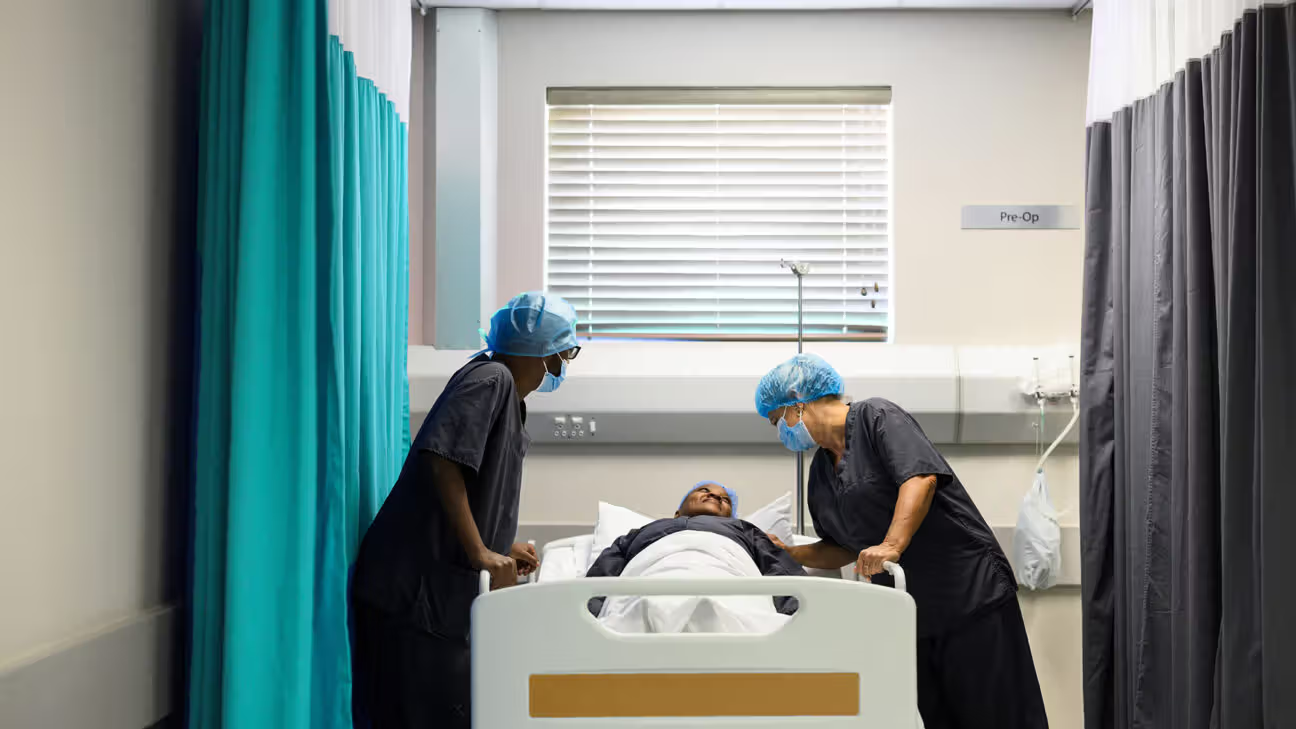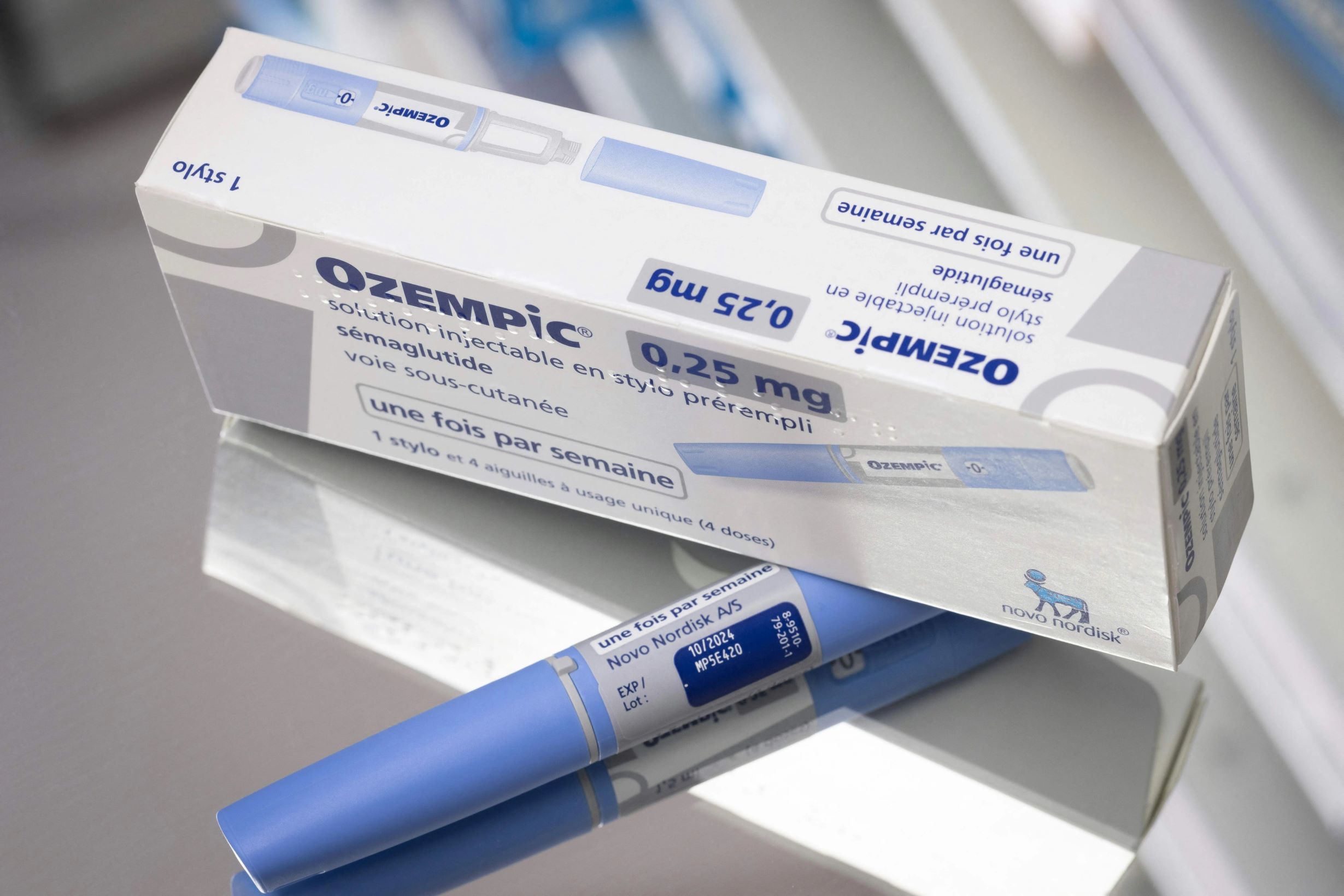Patients who take popular drugs like Wegovy or Ozempic for weight loss may encounter life-threatening complications if they require surgery or other procedures necessitating an empty stomach for anesthesia.
This summer’s guidance to pause the medication for up to a week may not be sufficient.
Some anesthesiologists in the U.S. and Canada have observed increasing numbers of patients on these weight-loss drugs inhaling food and liquid into their lungs while sedated, as their stomachs remained full despite following standard pre-surgery fasting instructions of six to eight hours.
These drugs can significantly slow digestion, increasing the risk of pulmonary aspiration, which can lead to dangerous lung damage, infections, and even death, explained Dr. Ion Hobai, an anesthesiologist at Massachusetts General Hospital in Boston.
“This is such a serious sort of potential complication that everybody who takes this drug should know about it,” Hobai emphasized, being among the first to highlight the issue.
Nearly 6 million prescriptions for drugs like Wegovy and Ozempic were written between January and May in the U.S. for individuals without diabetes, according to Komodo Health, a healthcare technology company.
These drugs promote weight loss by mimicking gut hormones that activate after eating, influencing gut-brain signals that regulate appetite and satiety, and by slowing stomach emptying.
In June, the American Society of Anesthesiologists recommended that patients skip daily weight-loss medications on the day of surgery and refrain from weekly injections for a week before any procedures involving sedation.
Dr. Michael Champeau, the group’s president, stated that this advice was based on anecdotal reports of problems, including aspiration, from across the country.
The exact number of patients affected by this issue remains unclear. However, due to the severe potential consequences, Hobai and colleagues voiced their concerns in the Canadian Journal of Anesthesia, suggesting a longer pause — about three weeks before sedation — to account for the time semaglutide, the active ingredient in Wegovy, remains in the body.
“When 90% of it is gone, which is after three weeks, hopefully everything should go back to normal,” said Dr. Philip Jones, a Mayo Clinic anesthesiologist and the journal’s deputy editor-in-chief.

Champeau and Jones both acknowledged the lack of definitive evidence on the optimal duration to pause semaglutide for safe anesthesia.
Many patients may not see their providers early enough to stop the drug three weeks before procedures, Champeau noted.
Aspiration occurs in roughly one in every 2,000 to 3,000 operations requiring sedation, with nearly half of those cases resulting in related lung injuries.
Recent reports indicate patients on semaglutide experienced issues even after fasting for up to 20 hours before their procedures. “There’s nothing that says if you fast twice as long, it will be OK,” Champeau remarked.
One report involved a 42-year-old man in Boston, a recent Wegovy user, who had to be intubated and suffered respiratory failure, requiring intensive care after aspirating food that remained in his stomach despite an 18-hour fast.
Another case in Chapel Hill, North Carolina, involved a 31-year-old woman on a low dose of Ozempic who fasted for 10 hours before a routine endoscopy prior to bariatric surgery.
Her procedure had to be halted due to the presence of solid food in her stomach, posing a high risk for aspiration.
Since then, doctors have observed dozens of similar cases as the use of weight-loss medication has surged, reported Dr. Elisa Lund, an anesthesiologist at the University of North Carolina at Chapel Hill School of Medicine. “It has exponentially increased,” she noted.
Hobai is conducting a retrospective study of nearly 200 patients on semaglutide, expected to be published later this year.
Preliminary findings align with a small Brazilian study, indicating about a quarter of patients on semaglutide had residual food in their stomachs during procedures requiring sedation, even after stopping the drug for 10 days.
The American Society of Anesthesiologists advises doctors uncertain about a patient’s drug pause to treat them as if they have full stomachs, possibly using different sedation protocols or delaying procedures.
Jones stressed the urgent need for research to update guidelines for doctors and patients.
Novo Nordisk, the manufacturer of Ozempic, Wegovy, and similar drugs, stated that their clinical trial and post-marketing safety data did not show these medications leading to aspiration.
However, they acknowledged that the drugs are known to cause delayed stomach emptying, with labels warning of potential gastrointestinal side effects.
Stopping the medications for three weeks can present challenges. Patients with diabetes will need alternative blood sugar control methods, and those aiming to lose weight may experience setbacks, Hobai pointed out.
Hobai advises people using Wegovy and similar drugs to inform their doctors before sedation and discuss the risks and benefits.
“If you’re taking this drug and you need an operation, you will need to have some extra precautions,” he emphasized.
